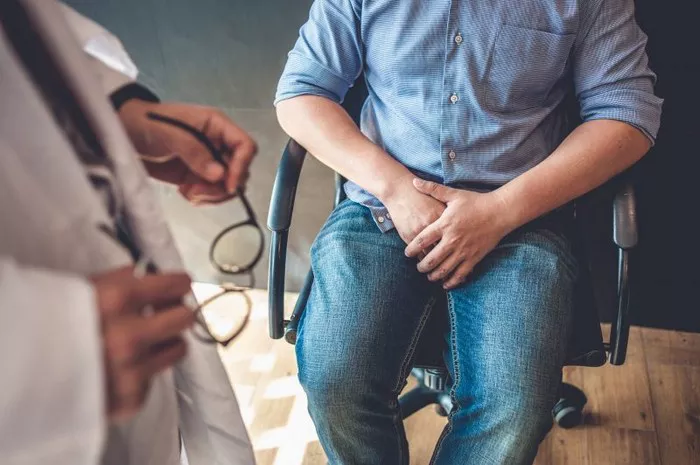Varicocele is a common condition that affects the veins within the scrotum. It is similar to varicose veins that can occur in the legs. The condition involves the swelling of veins in the scrotum, and it can lead to a variety of symptoms. While some individuals may not experience noticeable symptoms, others may develop signs that can cause discomfort or even fertility problems. Recognizing the signs of varicocele early is important for preventing complications and seeking appropriate treatment.
This article discusses the five most common signs of varicocele and how they can affect a person’s health.
Understanding Varicocele
What Is Varicocele?
Varicocele is a condition where the veins in the scrotum become enlarged. These veins are part of the pampiniform plexus, which is responsible for draining blood from the testicles. The enlargement occurs when the valves inside these veins do not function properly, allowing blood to pool and cause swelling. Over time, this swelling can become noticeable, especially when standing or during physical exertion.
Varicocele is common in men, especially during adolescence. It can develop gradually and may be asymptomatic in many cases. However, in some instances, it can cause pain, discomfort, and even affect fertility.
How Common Is Varicocele?
It is estimated that around 15% to 20% of men may have varicocele. The condition is often discovered during routine physical examinations or when a man seeks medical advice for issues such as scrotal pain or fertility concerns. It is more common in men between the ages of 15 and 25, though it can occur at any age.
Five Key Signs of Varicocele
1. Swelling or Lumps in the Scrotum
One of the most noticeable signs of varicocele is swelling in the scrotum. The veins in the scrotum become enlarged, which may cause the scrotum to appear lumpy or uneven. The swelling may not be immediately obvious but can be felt when palpating the scrotum. In some cases, the swollen veins may resemble a “bag of worms” because of their appearance.
The swelling tends to worsen when the individual is standing or engaging in physical activity. When lying down, the swelling may reduce or disappear. This can help distinguish varicocele from other conditions that cause similar symptoms.
2. Pain or Discomfort in the Scrotum
Pain or discomfort in the scrotum is another common sign of varicocele. The pain is often described as a dull, aching sensation that may be more noticeable after prolonged standing, exercise, or heavy physical activity. The pain may vary in intensity and can come and go, sometimes becoming more severe with activities that increase pressure on the veins, such as lifting heavy objects or straining.
In many cases, the discomfort is not constant, but it may occur after the individual has been on their feet for a while or after vigorous physical exertion. It is important to note that not all men with varicocele will experience pain, and some may have no symptoms at all.
3. Decreased Testicular Size
Varicocele can lead to a decrease in the size of the affected testicle. Over time, the swelling of the veins can disrupt normal blood flow to the testicle, which may affect its function. The reduced blood flow can lead to testicular atrophy, where the testicle shrinks and becomes smaller than the unaffected testicle.
This change in size may be subtle at first, but as the condition progresses, the difference in size between the two testicles may become more apparent. The testicle on the side with the varicocele may feel softer or less firm than the healthy testicle. This symptom is often detected during a physical examination by a doctor.
4. Infertility or Difficulty Conceiving
Varicocele is one of the most common causes of male infertility. The enlargement of the veins in the scrotum can affect the temperature regulation of the testicles, which is critical for the production of sperm. Higher temperatures in the testicles can impair sperm production and quality, leading to lower sperm count, motility issues, and potential difficulty in conceiving.
Men with varicocele who experience infertility often do not have any other obvious symptoms, such as pain or swelling. Therefore, if a man is struggling with fertility issues, a varicocele may be the underlying cause, even if the symptoms are not clearly apparent.
5. Visible or Palpable Veins in the Scrotum
In some cases, varicocele can cause veins in the scrotum to become more prominent and visible. This is often seen as a network of twisted veins under the skin, resembling a “bag of worms.” These veins may be more noticeable when standing up, and they may become even more prominent when the individual is exerting themselves physically.
While visible veins are not always a clear sign of varicocele, they are often indicative of the condition, especially when combined with other symptoms like pain or swelling. The veins may feel tender to the touch and may be more noticeable in warmer weather or during physical activity.
Diagnosing Varicocele
How Is Varicocele Diagnosed?
A varicocele is typically diagnosed through a physical examination. During the exam, the doctor may ask the patient to stand up and perform a Valsalva maneuver, which involves holding the breath and bearing down, similar to what happens when lifting something heavy. This increases the pressure in the veins, making the varicocele more noticeable.
In some cases, an ultrasound may be performed to confirm the diagnosis and assess the size of the varicocele. An ultrasound uses sound waves to create images of the veins and can help the doctor evaluate the severity of the condition.
When to See a Doctor?
If you experience any of the signs mentioned above, such as swelling, pain, or changes in testicle size, it is important to consult a doctor. Varicocele can affect fertility, and early detection and treatment can help prevent complications. If you are struggling with infertility, it is advisable to get checked for varicocele as part of the diagnostic process.
Treatment for Varicocele
When Is Treatment Necessary?
Not all varicoceles require treatment. In many cases, the condition does not cause significant symptoms or complications, and it may not affect the individual’s quality of life. However, if the varicocele is causing pain, discomfort, or fertility issues, treatment may be recommended.
The most common treatments for varicocele include:
Surgical Repair: A varicocelectomy is a surgical procedure in which the enlarged veins are removed or tied off to restore normal blood flow. This is typically done if the varicocele is causing pain or infertility.
Embolization: This is a less invasive treatment option in which a catheter is inserted into the veins, and a substance is injected to block the affected veins.
Both treatments have high success rates and can help alleviate symptoms and improve fertility.
Conclusion
Varicocele is a condition that often goes unnoticed until symptoms become more pronounced. The five signs of varicocele include swelling or lumps in the scrotum, pain or discomfort, decreased testicular size, infertility or difficulty conceiving, and visible or palpable veins in the scrotum. If you experience any of these signs, it is important to seek medical advice for diagnosis and treatment. Early detection and treatment can prevent complications and improve overall health and fertility.
Related topics:
Can I Go to the Gym After Varicocele Surgery?
























